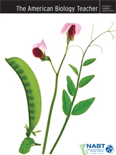
AMERICAN BIOLOGY TEACHER
Scope & Guideline
Fostering Innovation in Biology Education for Tomorrow's Leaders
Introduction
Aims and Scopes
- Innovative Teaching Strategies:
The journal emphasizes active learning approaches, such as inquiry-based learning and project-based education, to enhance student engagement and understanding in biology. - Integration of Current Events:
Papers often explore ways to incorporate current scientific events and societal issues into the biology curriculum, helping students connect classroom learning to real-world applications. - Diversity in Biology Education:
There is a focus on inclusive teaching practices that cater to diverse learning needs and backgrounds, ensuring that all students have access to quality biology education. - Research and Evidence-Based Practices:
The journal promotes research-driven methodologies for teaching and assessing student learning in biology, providing educators with data to support their instructional strategies. - Interdisciplinary Approaches:
The scope includes interdisciplinary methods that link biology with other fields such as environmental science, technology, and ethics, preparing students for a holistic understanding of biological topics. - Use of Technology in Education:
The journal explores the incorporation of technology in biology education, including digital tools and resources that enhance learning and teaching effectiveness.
Trending and Emerging
- Active Learning and Engagement Strategies:
Recent articles emphasize innovative strategies such as gamification, role-playing, and debate to promote active learning and student engagement in biology. - Environmental and Climate Change Education:
There is a growing trend towards integrating environmental issues and climate change into the biology curriculum, reflecting the urgency of these topics in society. - Use of Technology and Digital Tools:
Emerging themes include the use of digital tools, simulations, and online resources to enhance biology education, particularly in remote and hybrid learning environments. - Ethics and Social Justice in Science:
An increasing number of publications focus on the ethical dimensions of biology, including discussions on genetics, biotechnology, and the social implications of scientific discoveries. - Collaborative and Community-Based Learning:
There is a trend towards emphasizing collaborative learning experiences, including community-based projects and citizen science, to foster a deeper connection with biological research.
Declining or Waning
- Traditional Lecture-Based Instruction:
There is a noticeable decrease in articles advocating for conventional lecture methods, as the journal increasingly favors active and student-centered learning approaches. - Dissection in Biology Education:
The frequency of papers discussing dissection as a teaching tool has diminished, likely due to the growing popularity of alternative methods and ethical considerations in education. - Focus on Lower Education Levels:
Topics specifically targeting lower education levels (e.g., elementary school biology) seem to be less prevalent, with a shift towards high school and undergraduate education. - Emphasis on Basic Biological Knowledge:
There is a waning focus on basic biological facts and rote memorization, as the journal moves towards fostering critical thinking and deeper conceptual understanding. - Static Curriculum Models:
Papers advocating for static, traditional curriculum models are becoming less common, replaced by discussions on dynamic, adaptable curricula that respond to changing scientific knowledge.
Similar Journals
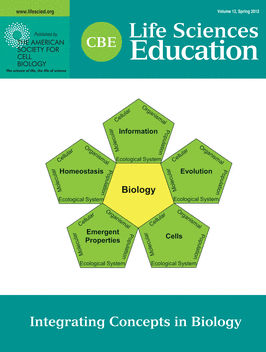
CBE-Life Sciences Education
Empowering Educators and Researchers in Biological Sciences.CBE-Life Sciences Education, published by the American Society for Cell Biology, is a premier academic journal that bridges the fields of education and life sciences. With a robust impact factor reflected in its prestigious Q1 ranking in both Biochemistry, Genetics and Molecular Biology and Education categories in 2023, this journal is pivotal for researchers and educators alike. Its mission is to enhance learning and pedagogy across the biological sciences, fostering innovative educational practices that elevate the teaching and understanding of complex biological concepts. With a convergence of rigorous research and practical insights, CBE-Life Sciences Education serves as an essential resource for professionals and students committed to advancing life sciences education. The journal is available through traditional subscription, ensuring access to a wide array of valuable articles from 2006 to the present and beyond.
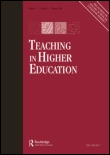
TEACHING IN HIGHER EDUCATION
Shaping the dialogue on curriculum development and pedagogy.TEACHING IN HIGHER EDUCATION is a premier academic journal published by Routledge Journals, Taylor & Francis Ltd, dedicated to advancing the scholarship and practice of teaching within the higher education sector. With an ISSN of 1356-2517 and an E-ISSN of 1470-1294, this journal is widely recognized for its profound impact in the field, boasting a 2023 category rank of Q1 in Education, placing it in the top tier of educational research. Its commitment to fostering an inclusive and dynamic discourse on pedagogical methods and learning frameworks makes it essential reading for researchers, educators, and policymakers alike. Spanning topics such as student engagement, curriculum development, and innovative teaching strategies, TEACHING IN HIGHER EDUCATION aims to contribute to ongoing conversations and practical applications that enhance the educational landscape. While an Open Access option is not available, the journal maintains a robust readership, with its articles being rigorously peer-reviewed and disseminated to reflect cutting-edge research trends and practices in education.

REDU-Revista de Docencia Universitaria
Elevating University Teaching with Cutting-Edge PracticesREDU-Revista de Docencia Universitaria, published by UNIV POLITECNICA VALENCIA, EDITORIAL UPV, is a prominent open-access journal dedicated to advancing the field of higher education pedagogy. Established in 2008, this journal serves as a vital platform for academics and educators to share insightful research and innovative practices aimed at improving university teaching and learning. With a commitment to fostering educational excellence, REDU promotes a rich dialogue among researchers, professionals, and students across various disciplines. The journal is indexed by notable databases, ensuring wide visibility and accessibility of published works. By addressing contemporary challenges and developments in university instruction, REDU plays a crucial role in shaping educational methodologies and informing policies within the academic landscape.
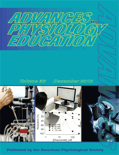
ADVANCES IN PHYSIOLOGY EDUCATION
Fostering Excellence in Physiology TeachingADVANCES IN PHYSIOLOGY EDUCATION, published by the American Physiological Society, is a leading journal dedicated to the field of physiology education, with a commitment to advancing teaching practices and pedagogical strategies in this vital discipline. Established in 1998, the journal has consistently provided a platform for original research and discussion, fostering the improvement of educational methodologies. With an impressive impact factor and ranked in Q2 for Education and Q3 for Physiology, it reflects a robust academic influence within the research community. The journal ranks #458 out of 1543 in Social Sciences - Education and #130 out of 193 in Biochemistry, Genetics, and Molecular Biology - Physiology according to Scopus, highlighting its critical role in shaping physiology education. While it operates on a subscription model, its focus remains on promoting innovative education practices that benefit both educators and students alike. This journal is essential reading for anyone looking to enhance their understanding of physiology teaching and learning.
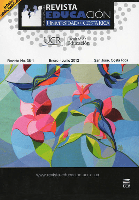
Revista Educacion
Empowering Education Through Open Access ResearchRevista Educación is a prestigious academic journal published by Universidad de Costa Rica, Editorial, dedicated to advancing the field of education through scholarly research and innovative pedagogical practices. Established as an Open Access journal since 1977, it aims to provide unrestricted access to high-quality research, fostering a collaborative environment for educators, researchers, and students to share knowledge and insights. With a commitment to addressing contemporary educational challenges in Costa Rica and beyond, Revista Educación serves as a vital forum for disseminating original research articles, case studies, and theoretical discussions that engage a diverse audience. The journal’s dedication to enhancing educational practices makes it an essential resource for those seeking to contribute to the field of education while promoting inclusive and equitable access to educational resources.

International Journal of Instruction
Fostering collaboration among scholars and practitioners worldwide.International Journal of Instruction is a distinguished peer-reviewed journal dedicated to advancing the field of education through high-quality research and innovative instructional practices. Published by GATE Association for Teaching & Education in Switzerland, this open-access journal has been a beacon of knowledge since its inception in 2008, ensuring that impactful educational research is freely accessible to scholars, educators, and practitioners worldwide. With an impressive Q2 ranking in Education and a notable position in the 80th percentile within its category in Scopus, the journal showcases cutting-edge studies and discussions that reflect current trends and methodologies in teaching and learning. The scope of the journal includes a wide array of topics, ranging from instructional strategies to curriculum development, making it a vital resource for anyone engaged in the dynamic landscape of education. Explore the International Journal of Instruction today to contribute to and benefit from the collective wisdom of the global educational community.
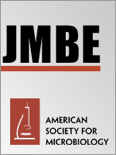
Journal of Microbiology & Biology Education
Elevating Educational Practices in Microbiology and BiologyJournal of Microbiology & Biology Education, published by the American Society for Microbiology, serves as a vital platform for advancing knowledge and education in microbiology and related biological fields. With an ISSN of 1935-7877 and an E-ISSN of 1935-7885, this open-access journal has been fostering scholarly communication since 2000, ensuring that vital research is accessible to a global audience. The journal covers a broad scope within the disciplines of Agricultural and Biological Sciences, Biochemistry, Genetics, Molecular Biology, and Educational methodologies, holding a significant position as reflected by its Q2 quartile rankings in multiple fields for 2023. The Scopus ranking highlights its relevance, ranking it in the 64th percentile in general Agricultural and Biological Sciences and Education, and 48th in Immunology and Microbiology. Positioned in the United States, the journal addresses the imperative need for educational resources and research dissemination in the ever-evolving landscape of microbiological sciences. Researchers, professionals, and students will find invaluable insights and pedagogical innovations within its pages, advancing both academic inquiry and educational practice.

International Journal for Technology in Mathematics Education
Exploring the synergy of technology and mathematics learning.International Journal for Technology in Mathematics Education (ISSN: 1744-2710, E-ISSN: 2045-2519) is a pioneering platform published by Research Information Ltd that focuses on the interplay between technology and mathematics education. Established to bridge the gap between pedagogical practices and technological advancements, this journal connects researchers, educators, and practitioners in a bid to enhance teaching methodologies and optimize learning outcomes in mathematics. Although its coverage in Scopus was discontinued after 2020, it continues to be a vital resource for those interested in the integration of technology into educational settings. With its significant emphasis on interdisciplinary approaches, the journal has garnered attention in the realms of social sciences and computer science, with Scopus rankings reflecting its niche contributions. This journal is crucial for professionals aiming to explore innovative techniques in mathematics education, making it an invaluable addition to any academic library.

Educacao & Formacao
Fostering Innovation in Education and TrainingEducacao & Formacao is a pioneering academic journal published by the State University of Ceará within the Centro de Educação, focusing on the fields of education and teacher training. With an E-ISSN of 2448-3583, this journal has embraced the open access model since 2016, ensuring that high-quality research is freely accessible to educators, researchers, and practitioners globally. The journal serves as a vital platform for disseminating innovative research, critical analyses, and best practices in education, particularly within the Brazilian context and beyond. With its commitment to contributing to the discourse on education, Educacao & Formacao encourages submissions that advance knowledge and foster improvements in educational practices. The journal’s focus on accessibility and engagement makes it an invaluable resource for professionals and students eager to stay abreast of current trends and developments in education.
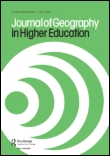
JOURNAL OF GEOGRAPHY IN HIGHER EDUCATION
Exploring innovative pedagogies in geography and education.JOURNAL OF GEOGRAPHY IN HIGHER EDUCATION is a premier academic journal that serves as a vital platform for scholarly discourse in the fields of geography and education. Published by Routledge Journals, Taylor & Francis Ltd, this esteemed journal has been at the forefront of advancing research and pedagogical practices since its inception in 1977, with contributions converging until 2024. With an impressive reputation characterized by its Q1 ranking in both Education and Geography, Planning and Development for 2023, the journal is positioned as a leading resource for educators and researchers alike, boasting an elite placement in the Scopus ranks. The journal aims to disseminate innovative research, encourage interdisciplinary dialogue, and enhance teaching methodologies, which are essential for fostering a comprehensive understanding of geographical concepts in higher education. As a vital resource for academics, professionals, and students, the JOURNAL OF GEOGRAPHY IN HIGHER EDUCATION continues to shape the nexus of geography and education, offering insights that influence teaching and learning approaches globally.